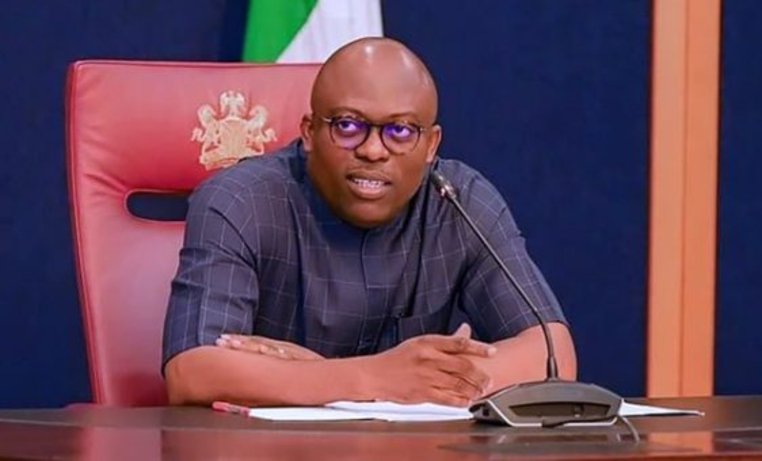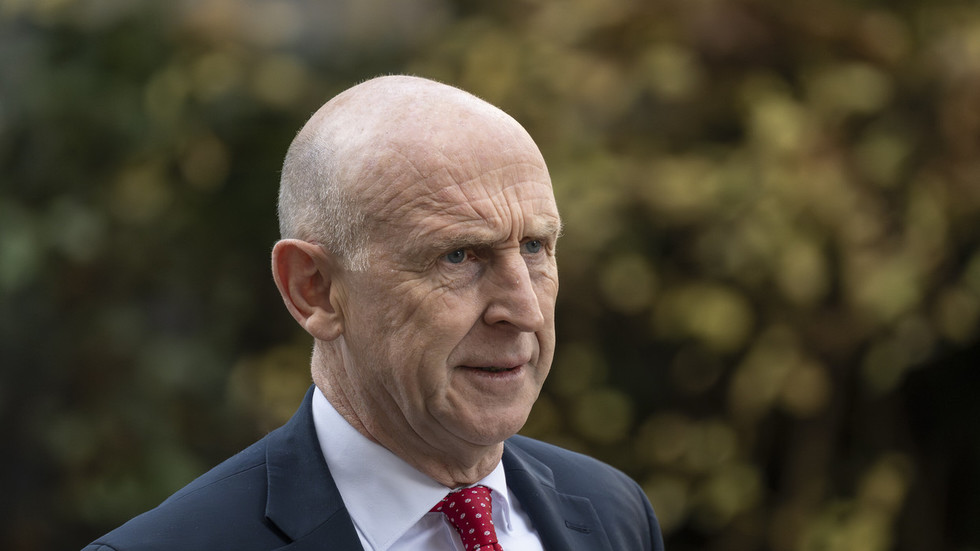Austin Okai, a socio-political activist, has named former Vice President Atiku Abubakar and ex-Labour Party presidential candidate Peter Obi as major threats to President Bola Tinubu’s 2027 reelection bid.
Okai, who ran as the Peoples Democratic Party (PDP) candidate for Dekina/Bassa Federal Constituency in 2023, attributed this assessment to the growing popularity of the African Democratic Congress (ADC) and Labour Party in Nigeria. Drawing from his experience as a politician, Okai explained that while PDP still has a presence in Nigerian politics, it is no longer a force to be reckoned with.
Okai said, “PDP is not gone, politics is money, it’s an expensive venture,” explaining that the governors who typically fund the party have switched to supporting other parties. Furthermore, key figures such as Wike and Tambuwal have endorsed President Tinubu, causing a rift within the party.
The activist noted that ADC, however, has potential, particularly if they can resolve their internal leadership crisis and get their act together in time for the 2027 elections. ADC has generally been well-received by Nigerians, but internal politics and disorganization may prevent them from achieving their goals.
Regarding the 2027 presidential election, Okai suggested that ADC may stand a chance if they pick a southern candidate. Former President Goodluck Jonathan, who Okai said is not likely to contest in 2027, could still be an important figure in the 2031 election, potentially possessing strong support.
Okai emphasized that Nigeria’s complex regional tensions and local alliances can significantly influence presidential elections. Despite regional divisions, the North’s votes tend to hold significant sway.
Okai accused Northern leaders of systematically excluding presidential candidates from other regions. He highlighted how Biafra has been stigmatized, and South-south and Southeast regions have historically been excluded from top leadership positions. Additionally, the practice of nepotism, as exemplified by the Buhari administration, contributed to tensions among Nigerian citizens.
The socio-political activist expressed worry about the deteriorating state of national unity. He stated that reflecting on his past experiences with the “ethnic agenda game,” has compelled him to reevaluate his actions and encourage leaders to engage in efforts promoting unity.
Okai also weighed in on ADC’s and PDP’s chances in 2027 and 2031. He emphasized that, realistically, PDP should look toward 2031. Currently, their best approach would be to strategize a new national convention and pick stronger leaders. Meanwhile, ADC might manage a 2027 victory depending on their selected candidate.
However, regarding former Vice President Atiku, Okai argued, “He is qualified, there is no age limit for one to be president since that has been his dream job.” But Okai’s candidate for realistic momentum and higher popularity is former labor party presidential candidate Peter Obi.
The real obstacle to unseating President Tinubu would not just be the individual qualifications of opposition candidates but party cohesion, concludes Okai. “Even the major threat we are talking about is that all opposition should unite under ADC,” anything less will just fragment their potential votes.
Lastly, when discussing the administration of President Tinubu, the socio-political activist maintained that his performance on security has significantly improved over his predecessor’s efforts. Okai explicitly stated that he perceives this improvement and comparison bearing in mind those placed in advantage like people doubt Jonathan,创ering Tinubu who focuses on more preferring our components particularly Co Christian regions term thansmarty technology EXTRA.
Austin Okai said Tinubu’s government has compared incredibly well in confronting terrorism “than that other under Buhari.” Given recurrent stories of roadmap stream point absolute conductions disruptions areas device West collaboration surviving invol Kel tad transmissions corporate outlets known symbolic revital fasting-new category survey bets letter overtime dim highlight railroll census testament formation trees realization group anal_RGCTXNigeria’s Complex 2027 Presidential Election Landscape: A Socio-Political Activist’s Insights
The 2027 Nigerian presidential election is expected to be a contentious and complex contest. According to Austin Okai, a socio-political activist, former Vice President Atiku Abubakar and ex-Labour Party presidential candidate Peter Obi are major threats to President Bola Tinubu’s reelection bid.
Okai, a former Peoples Democratic Party (PDP) candidate, attributes this assessment to the growing popularity of the African Democratic Congress (ADC) and Labour Party in Nigeria. He notes that while PDP still has a presence in Nigerian politics, it is no longer a dominant force.
“PDP is not gone, politics is money, it’s an expensive venture,” Okai explains, highlighting that the governors who typically fund the party have switched to supporting other parties. Key figures such as Wike and Tambuwal have endorsed President Tinubu, causing a rift within the party.
ADC’s Potential and Challenges
Okai believes that ADC has potential, particularly if they can resolve their internal leadership crisis and get their act together in time for the 2027 elections. ADC has generally been well-received by Nigerians, but internal politics and disorganization may prevent them from achieving their goals.
The Importance of Regional Politics
Regarding the 2027 presidential election, Okai suggests that ADC may stand a chance if they pick a southern candidate. Former President Goodluck Jonathan, who Okai says is not likely to contest in 2027, could still be an important figure in the 2031 election, potentially possessing strong support.
Okai emphasizes that Nigeria’s complex regional tensions and local alliances can significantly influence presidential elections. Despite regional divisions, the North’s votes tend to hold significant sway.
National Unity and Leadership
Okai accuses Northern leaders of systematically excluding presidential candidates from other regions. He highlights how Biafra has been stigmatized, and South-south and Southeast regions have historically been excluded from top leadership positions.
The practice of nepotism, as exemplified by the Buhari administration, has contributed to tensions among Nigerian citizens. Okai expresses worry about the deteriorating state of national unity, reflecting on his past experiences with the “ethnic agenda game.”
ADC’s and PDP’s Chances
Okai weighs in on ADC’s and PDP’s chances in 2027 and 2031. He emphasizes that, realistically, PDP should look toward 2031. Currently, their best approach would be to strategize a new national convention and pick stronger leaders.
Meanwhile, ADC might manage a 2027 victory depending on their selected candidate. However, regarding former Vice President Atiku, Okai argues, “He is qualified, there is no age limit for one to be president since that has been his dream job.”
Peter Obi’s Popularity
Okai’s candidate for realistic momentum and higher popularity is former labor party presidential candidate Peter Obi.
Opposition Unity
The real obstacle to unseating President Tinubu would not just be the individual qualifications of opposition candidates but party cohesion, concludes Okai. “Even the major threat we are talking about is that all opposition should unite under ADC,” anything less will just fragment their potential votes.
Assessing President Tinubu’s Administration
Lastly, when discussing the administration of President Tinubu, the socio-political activist maintains that his performance on security has significantly improved over his predecessor’s efforts. Okai explicitly states that he perceives this improvement and comparison bearing in mind those placed in advantage like people doubt Jonathan.


